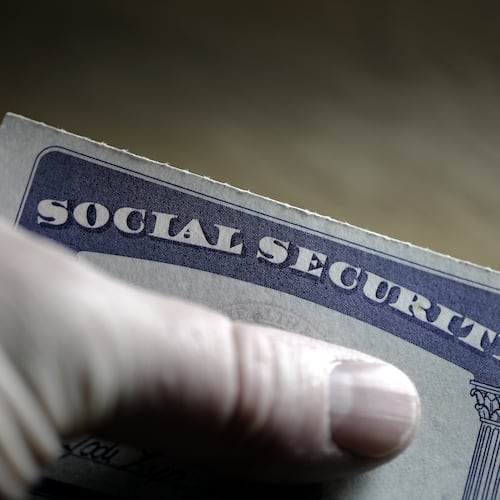WASHINGTON — House Democrats on Monday released the first draft text for key pieces of legislation that will comprise President Joe Biden’s COVID-19 relief bill.
The legislative language from the Ways and Means, Financial Services and Education and Labor committees shows Democrats are forging ahead with plans to bump the federal minimum wage to $15 an hour by 2025 and make another round of stimulus payments. Billions of dollars are planned for airline staff, airports and trains.
In all, 12 committees are meeting in the coming days to assemble the stimulus bill for a House floor vote during the week of Feb. 22. Once the bill goes to the Senate, it is designed to be passed with just 50 members plus the tiebreaking vote of Vice President Kamala Harris using a special budget fast-track procedure.
The House Ways and Means Committee’s draft measures would send $1,400 payments to individuals earning up to $75,000 or couples making $150,000. Those payments phase out so singles earning more than $100,000 or married taxpayers making $200,000 and up get nothing. Eligibility will be based on 2019 or 2020 income. The bill would also send $1,400 payments to adult and child dependents in households that qualify.
The Ways and Means plan also includes:
— An extension and expansion of unemployment benefits that are scheduled to run out in mid-March. The bill would increase the weekly federal benefit to $400 from $300 and extend it through the end of August.
— Benefits for self-employed individuals and gig workers, and those who have exhausted their regular jobless benefits, would also be extended.
— Paid-leave benefits for workers and tax credits for employers with fewer than 500 employees to reimburse them for the cost of the leave.
— An increase in the annual child credit to $3,600 a year for children 5 and younger and $3,000 for those 6 and up. The money would come in monthly installments from July through December.
— A bump in the earned income tax credit for low-wage workers and the dependent care tax credit for children and adults.
Biden campaigned on an expanded child tax credit, which has been a longtime goal of Democrats, who are already beginning a push to make the more generous provision a permanent fixture of the tax code. Republicans including Sens. Mitt Romney of Utah and Marco Rubio of Florida have also expressed support for a larger child credit.
Education and Labor Chair Bobby Scott’s draft bill includes Biden’s minimum-wage proposal, which also phases out the lower wage for tipped workers. The committee, set to meet Tuesday to hold votes on the bill, estimates that 27 million workers would see a pay increase under the provision by 2025, if it passed.
The Education and Labor panel’s language also includes:
— $130 billion for kindergarten through 12th grade school reopening
— $40 billion for higher education institutions
— $39 billion for child care businesses
— $5 billion for extended pandemic food benefits
— $4 billion for expanded home-heating assistance
— $1.4 billion for senior care services
— Provisions to tighten workplace safety standards for COVID-19
— Funding to subsidize health insurance for the newly unemployed, and to address a rise in domestic violence and child abuse.
The Financial Services Committee is charged, under the terms of the 2021 budget adopted last week by Congress, with drafting legislation totaling $75 billion in deficit increases. Chair Maxine Waters will convene the panel on Wednesday to vote on this portion of the bill.
The Waters panel’s draft language includes:
— $10 billion to use the Defense Production Act to produce masks and other COVID-19 equipment
— $25 billion for rental assistance, largely run through the Treasury Department
— $5 billion in assistance for the homeless
— $10 billion for direct assistance to homeowners for mortgage payments, property taxes and utility costs
— $14 billion in payroll assistance to airlines, with $1 billion for their contractors
As for the Transportation Committee, its draft text provides measures including the following:
— $50 billion for the Federal Emergency Management Agency to deal with the COVID-19 disaster
— $30 billion for transit
— $8 billion for airports
— $1.5 billion for Amtrak
About the Author
The Latest
Featured


